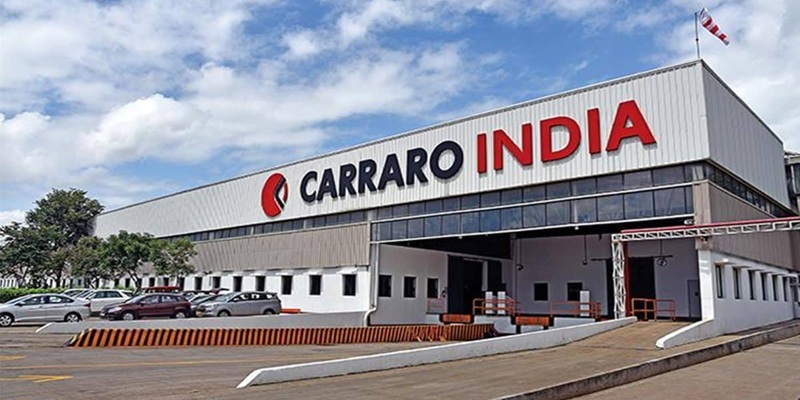Schedule a Call Back
Skilling is critical for power sector as it drives country’s economy
 Industry News
Industry News- Feb 01,22

In
India, being one of the biggest economies in the world with growing
industrialisation, demand for power is likely to rise manifold in the near
future. This is expected to increase the demand of skilled and trained people
in this area. It is estimated that the power sector will need an additional
16.6 lakh skilled manpower by 2025. Meeting this demand for additional skilled
manpower will be a challenge for the sector. To solve this problem, Power
Sector Skill Council (PSSC) has been facilitating the skill development
activities by engaging capable training partners to provide meaningful training
to the workforce. In this interview, Ravi P Singh, CEO, Power Sector Skill
Council (PSSC), explains the importance of trained workforce in the power
sector and how PSSC is helping the industry in upskilling.
What
are the key objectives of the Power Sector Skill Council (PSSC)?
The
reasons for creating PSSC were multiple. Objectives were facilitating
comprehensive engagement with power utilities; sharing skill and employability
concerns with Industry partners; identification of major job roles with high
employment volumes; providing inputs for development of National Occupational
Standards/ Qualification Packs (NOS/QPs); support in NOS/QPs development study
by PSSC Consultants; support for validation; creating pool of skilled personnel
for power equipment manufacturing sector; preference in employment, recruitment
rules to be NSQF skill level compliant; and to consider PSSC certified workmen
for both permanent as well as outsourced employment.-
Why
is there a lack of availability of skilled and trained people in the power
sector?
One
of the reasons is lack of awareness among public about this sector. Sufficient
initiatives are not being taken by the corporates for nominating their
workforce for training in this sector. There is also an issue of non-assessment
of the workforce after the training, due to which it cannot be ascertained/
categorised that who is qualified and who is not. People are employed as and,
therefore, they get the work from the contractors and do not bother to get
themselves trained. There is a need to create awareness about skilling in
communities/industries.
How
is PSSC helping in skilling human resources for the power industry?
PSSC
is creating a pool of skilled & trained manpower for power industries by
imparting training in different job roles and various government schemes. PSSC
has also developed a LMIS Job Portal through which job seekers and providers
both are benefitted.
Why
do you think skill development is the key to the transformation of the power
sector?
Energy
is one of the drivers for any country’s economy, and if skilling is power
sector sections like generation, transmission and distribution will be
affected. The efficient and reliable manpower for maintaining the power supply
chain can be strengthened through skill development.
With
the rise in automation and digitalization, what kind of new skillsets are
needed in employees?
With
the rise in automation and digitalization, students will be made aware about
the SCADA (Supervisory Control and Data Acquisition), AI (Artificial
Intelligence) and IoT (Internet of Things) through training. Practical sessions
for the above will be arranged to train them in a better way.
How
is PSSC equipping people to work in an automated (or semi-automated) workplace?
PSSC
is training manpower through hands-on practices and keeping them equipped with
all the latest techniques for smooth functioning of the network.
What
are your plans to further grow the scope of PSSC?
Development
of new Qualification Packs (QPs) as per market demand is in process. Training
will be provided to the candidates in the emerging sector like electric vehicle
(EV) charging stations. We expect to attract more trainees by increasing our
engagement contractual/ outsourced work force not properly done then different
on social media accounts.
Related Stories

MAN Industries Signs Five-Year MoU with Aramco Asia India
The MoU marks a significant milestone in strengthening energy sector cooperation between India and Saudi Arabia.
Read more
Jindal Stainless to Train and Upskill 0.5 Mn MSMEs through Stainless Academy
Jindal Stainless is building a future-ready stainless steel workforce through its Stainless Academy, empowering students, professionals, and MSMEs with skills that strengthen India’s industrial ec..
Read more
Jindal Stainless launches fabrication unit in Maharashtra
The company plans to expand its fabrication facility to other regions in India, with Mumbai fabrication unit will also be solar power enabled in its next phase.
Read moreRelated Products

Integrated Electric Gripper S Series
IBK Engineers Pvt Ltd offers a wide range of integrated electric gripper S series.

Geared Electric Motors
Delco Fans Pvt Ltd offers single phase capacitor run and three
phase geared Instrument motors, totally enclosed face/foot mounted.

“Kusam-Keco” Partial Discharge Acoustic Imager - Model - Km-pdai
‘Kusam-Meco’ has introduced a new “Partial Discharge Acoustic Imager Model KM-PDAI.
















